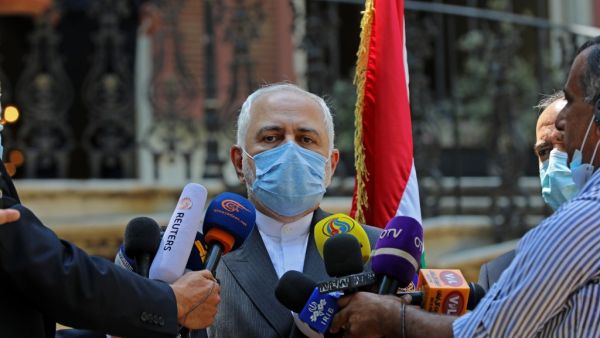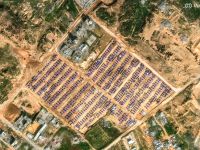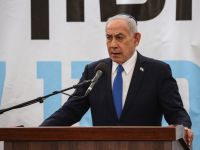Statements made Friday by Iranian Foreign Minister Muhammad Javad Zarif in Beirut reflected fears of Hezbollah losing its hegemony over Lebanon, at a time when 700 French soldiers are expected to arrive in Lebanon, only a couple of days following French President Emmanuel Macron’s phone call to Iranian President Hassan Rouhani telling him to stop meddling in Lebanese affairs.
This comes at a time when the political class in Lebanon is facing mounting international pressure to form a government dedicated to combatting corruption and saving the country from its political and economic meltdown.
In the past few days, senior American, French and German officials held talks with Lebanese officials, headed by President Michel Aoun. The latter has agreed to have the US Federal Bureau of Investigation (FBI) participate in investigating the August 4 massive explosion at Beirut port which destroyed part of the Lebanese capital.
The French Minister for the Armies, Florence Parly, invited the Lebanese to form a government capable of taking courageous decisions, noting that 700 French soldiers are preparing to come to Lebanon.
Parly indicated, during her visit to the site of the explosion at Beirut port, that “these painful scenes leave a great impact on my country, and every French felt that he was concerned with what happened.”
As if to respond to Parly, Zarif said, “Only the Lebanese people and their representatives can decide on the future of their country, after the massive explosion that rocked the city’s port and killed 172 people and pushed the government to resign.”
In a joint press conference with the Lebanese Minister of Foreign Affairs in the caretaker government, Charbel Wehbe, Zarif added: “From our point of view, it is not humane to exploit peoples’ pain and suffering to achieve political goals.”
Iran supports the Lebanese militant group Hezbollah, which, along with its allies, played a key role in forming the outgoing government headed by Hassan Diab.
Zarif’s visit to Beirut coincided with a flurry of Western diplomatic activity, urging Lebanon to eradicate corruption and enact long-awaited reforms so as to open the way for international financial aid to address the country’s economic crisis.
A former Lebanese minister ridiculed Zarif’s accusation to other countries of exploiting the pain of the Lebanese to achieve political goals.
He told The Arab Weekly “It seems that Zarif is still speaking in the manner of a tendentious agenda, while the whole world has revealed the position of the Lebanese people, all sects included, which rejects sectarianism and corruption of the ruling political class, a class subjected to Hezbollah’s agenda.”
“Lebanon’s real problem is that it has become a hostage of Hezbollah, a party run from Tehran. This is the reality that is pushing the Lebanese to stand up to the Iranian foreign minister,” he added, asking not to be named.
The Lebanese political class has been the target of ongoing popular protests, blaming it for the country’s many woes, even from before the August 4 blastthat killed and wounded thousands and destroyed entire neighbourhoods of the coastal city. The blast left 300,000 people homeless and about 30 people are still missing.
On Friday, Lebanese President Michel Aoun held separate talks with David Hale, US Under Secretary of State for Political Affairs, and French Minister for the Armies, Florence Parly.
Hale said that the US Federal Bureau of Investigation (FBI) will participate in investigating the cause and circumstances of the explosion that had occurred in a warehouse in the port and sent a huge cloud over the city sky. He further called for an end to “lame governments and hollow promises.”
There was no shortage of international humanitarian aid to Lebanon, but foreign donors conditioned their financial aid on the state introducing reforms. The country is already defaulting on its huge sovereign debt.
Meanwhile, the French Navy helicopter carrier Tonnerre docked on Friday in the devastated seaport of Beirut. The Lebanese authorities had said that more than 2,000 tons of highly explosive ammonium nitrate have been stored in a warehouse at the port for years without the appropriate security measures being taken.
President Aoun promised to conduct a speedy investigation into the explosion. He said the investigation will look into whether the cause was negligence, “outside interference” or just an accident.
Representatives of the victims’ families held a press conference and appealed to the UN Security Council, urging it to appoint an international investigation committee and refer the case to an international court.
A website created to provide a voice to the victims and their families said, “Government negligence and corruption have played a fundamental role in this crime.”
This article has been adapted from its original source.








